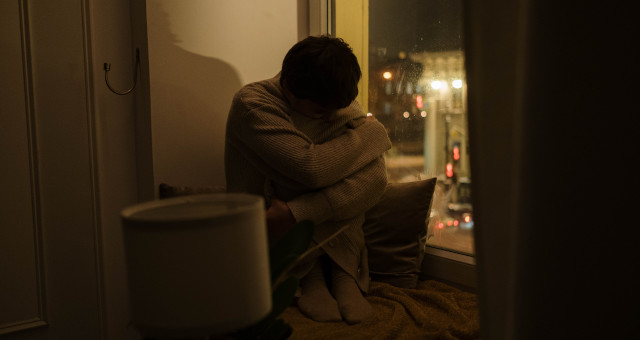
In my 15 years as a therapist, I’ve never seen so many lonely, emotionally disconnected people as I do right now. I suspect there are many societal forces driving this, such as the increased isolation brought on by the COVID-19 pandemic, the proliferation of social media, and the shift of greater numbers of people working from home than ever before – just to name a few. A recent survey from Harvard University found that “36% of all Americans—including 61% of young adults and 51% of mothers with young children—feel ‘serious loneliness.’” The study also found that “43% of young adults reported increases in loneliness since the outbreak of the pandemic. About half of lonely young adults in [the] survey reported that no one in the past few weeks had ‘taken more than just a few minutes’ to ask how they are doing in a way that made them feel like the person ‘genuinely cared.’” It is estimated that 63% of American young adults are currently suffering significant symptoms of anxiety or depression. Another report, by health insurer Cigna, surveyed 10,000 American adults and found that 3 in 5 of them reported being lonely. This represents a nearly 13% rise in loneliness since 2018. Can you relate? Chances are, you can.
What to Do When You’re Feeling Disconnected and Lonely:
- Identify and change the self-defeating thoughts and behaviors that fuel loneliness. The Harvard survey found that lonely individuals tend to be more critical – both of themselves and of others. They are also more likely to expect rejection, which can cause them to avoid social situations. Lonely people also tend to perceive that they give more than they receive in their relationships, which may cause them to withdraw even more. So, when you’re lonely, it’s important to catch yourself having negative thoughts about yourself and others, then actively stop those thoughts and replace them with more positive ones.
- Don’t allow social media and texting to become the primary way you maintain your relationships. In the Cigna report, “social media use was tied to loneliness as well, with 73% of very heavy social media users considered lonely, as compared with 52% of light users.” Overreliance on social media creates a temporary sense of connection, but ultimately leaves people feeling empty and lonely. Carve out some time and initiate in-person interactions and phone calls.
- Close relationships that bring emotional security and well-being are the antidote to disconnection and loneliness. So, get creative about ways to meet new potential friends. Join a social group or club, take a class, volunteer, or attend a religious service. Think about where other people who are like you and who share your values spend their time. Also, give some thought to the people you already know, but not well, who might have good friend potential.
- Reconnect with your kids. I am shocked at how many of my minor clients feel lonely, even while living at home with their families. Carve out face-to-face time with each of your kids. Spend time talking, playing board games, walking, or doing other activities that don’t impede conversation. Get back in the habit of giving frequent physical affection. Teenagers still need hugs, even if they act like they don’t. Take time to just be present with your child – not as a parent or a teacher – but just as a fellow human being. Get curious about what they like, how they think, and learning about the young adult they’re growing into being. Don’t criticize or apply pressure – just BE with them.
- Consider adopting a pet. Humans aren’t the only beings with whom we can develop a meaningful emotional connection. Many people’s lives have been enriched by the love they give to and receive from a dog, cat, or other cuddly creature.
- Find a creative outlet. Creative self-expression can be a powerful way to externalize the negative feelings associated with loneliness. It’s also a way to show love and care for ourselves. You can draw, paint, write, sing, or play an instrument – whatever allows you to self-express and brings you joy.
- If you’re feeling stuck, consider talking to a mental health professional. Sometimes the things that keep us isolated and make it hard to connect with others are complicated. A counselor has training and experience that helps get to the roots of loneliness so you can get relief more quickly.
